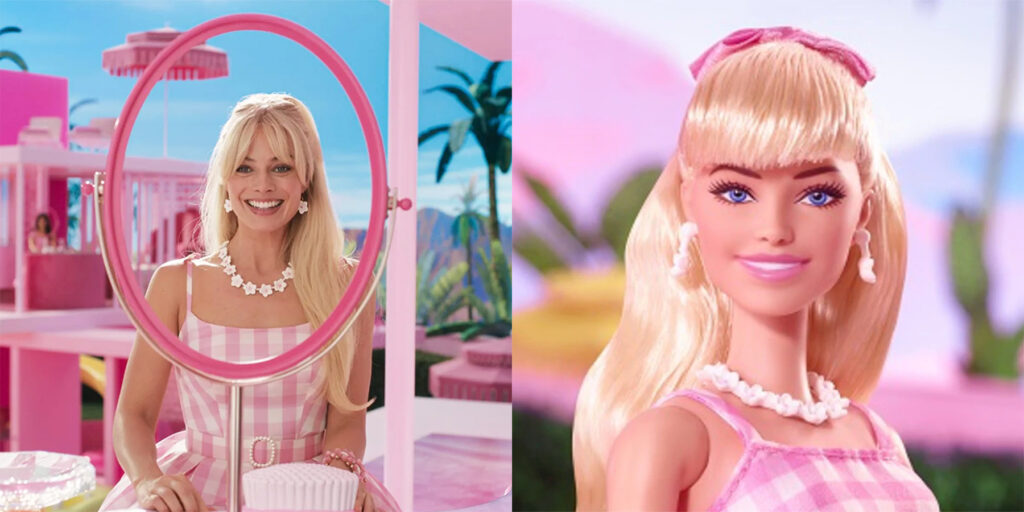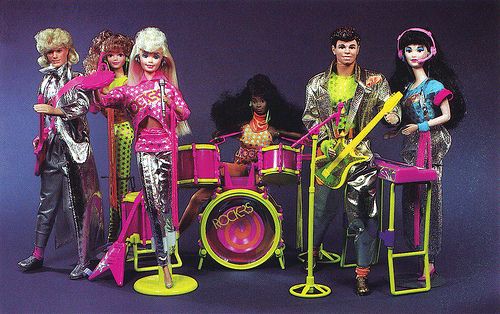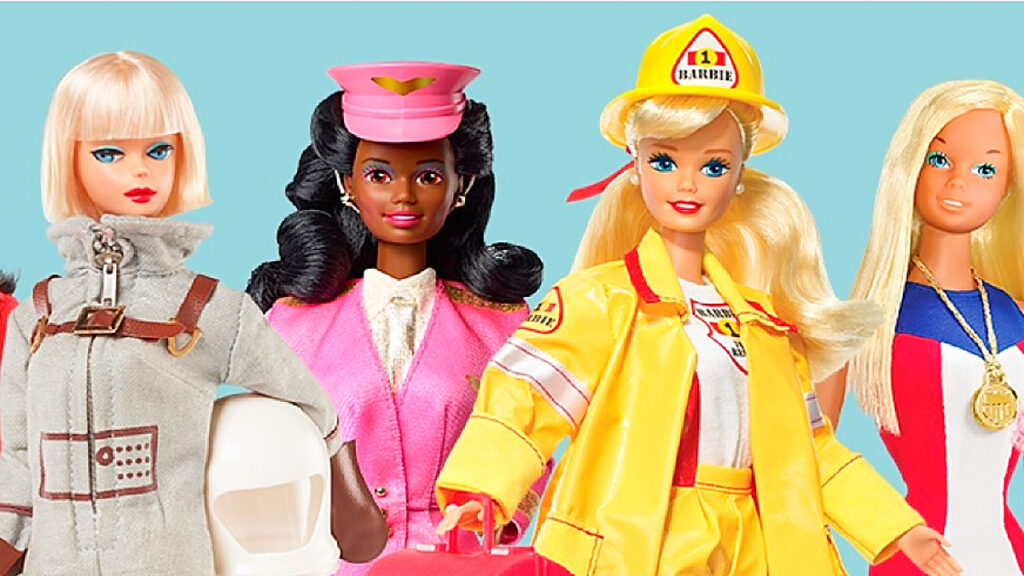The Problem with Barbie: A Contradiction for Feminist Ideology
Article originally published on Doorway Publishing.

Ah Barbie, every little girl’s favorite dress-up doll. Before there is ever political backbiting in a young girl’s life, all little darlings are bonded by one common thread: a love for the classic doll and all the accessories you could wish for. And I was no exception. In fact, I was downright obsessed with the 11.5-inch beauty.
As a child of the 80s, my absolute favorites were the musically inspired, funky-clad Barbie and the Rockers. All my friends and I ever wanted to do was meet up with our favorite dolls and live in a world of make-believe for a few hours. And we took our role-playing very seriously. We named each of our dolls like people name pets and ensured our sagas were ongoing like some daytime soap opera.

To my utter shame, I secretly kept up my childhood obsession well beyond the acceptable age of my peers—I was a bent, decrepit 12-year-old when I finally gave them up and passed my remnants on to my little sister. What a sad day that was! But it didn’t stop me from the occasional guilty pleasure of helping my sister dress and groom her collection…just to give her a hand, of course.
Since that time, we’ve heard it said many times how young girls have been utterly wrecked by the unrealistic beauty standards of the disproportionate glam doll. If that’s true, it’s way deep down in my psyche as I don’t remember thinking about it much beyond how aesthetically appealing Barbie and her friends were to play with. Newsflash: girls like pretty things! But throughout the 90s and into the 2000s we were barraged by the message that this doll was dangerous to the minds of little girls and to blame for all our body image woes.
Fast forward to the current new film, Barbie. Feminists are now beside themselves as to which message they want to push. On the one hand, they still want to undo such unrealistic standards of beauty, but at the same time, they want to ride Barbie’s lovely little coattails to push a feminist ideal. After all, Barbie has had an impressive career as a pilot, a firefighter, a doctor, an astronaut, and just about anything else you can imagine. Oooh feminists likey!

So, what’s to be done? Is Barbie the cause of all girlhood insecurities or is she a symbol of what a great society ruled by women could encompass? Apparently, they can’t make up their mind. But this is nothing new when it comes to keeping up with woke ideological trends. They are always fraught with contradictions that are ever-shifting because they are rooted in a deeper problem.
That problem is the desire for superiority. Progressives see life as a race with two ways to crush the competition and cross the finish line: work hard to develop your skills or take the shortcut and play the victim. The problem with this is that anyone who is winning must be toppled so some other perceived underdog demographic can get a chance at the title. But winning only means being immediately shoved to the back of the line, so there’s never really any winner. In the case of Barbie, she both represents the privileged pretty girl who gets undue special treatment with the hardworking career babe who is a slave to the patriarchy. Oh, what’s a blue-haired ideologue to do?
This is what happens when all you do is consider external factors. Christians do not approach the world as a race for success. People are not seen as our competitors or fellow victims, but rather someone to serve and point toward Christ. The Barbie doll was marketed as nothing more than a fantasy of ideal womanhood, but so too is the movie a fantasy that seeks to promote an idealistic utopia where the conflict of power between men and women is still not so easily resolved. But as Galatians 3:28 states, “There is neither Jew nor Gentile, neither slave nor free, nor is there male and female, for you are all one in Christ Jesus.” Therefore, none of these superficial factors should matter.
It is a carnal temptation that causes people to judge according to status and appearance, but 1 Samuel 16:7 says, “The Lord doesn’t see things the way you see them. People judge by outward appearance, but the Lord looks at the heart.” Instead, we can avoid the pitfall of contradiction when we follow Christ’s example and look at people’s hearts first and foremost. We should not reject or accept someone based on their poor circumstance any more than we should reject or accept someone of privilege. And speaking from experience, not every homely, socially awkward person is sweet and kind any more than every beautiful, popular person is mean and shallow. Sometimes, but we must “judge with righteous judgment” (John 7:24). God is no respecter of persons, and neither should we be.
But that is the conundrum. If you can’t fit people into boxes, who do we demonize? Here’s a thought: “Love must be sincere. Hate what is evil; cling to what is good. Be devoted to one another in love. Honor one another above yourselves. Never be lacking in zeal, but keep your spiritual fervor, serving the Lord. Be joyful in hope, patient in affliction, faithful in prayer.” (Romans 12:9-12)
And leave Barbie for the little girls to enjoy.








